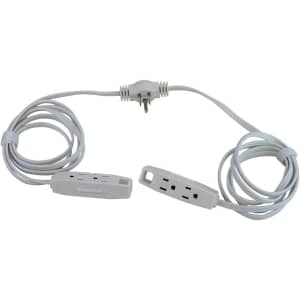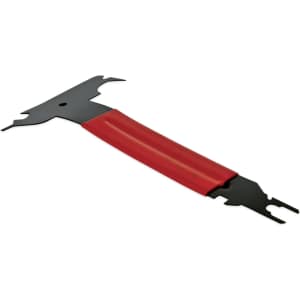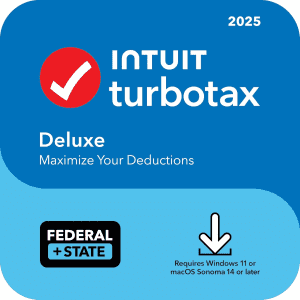
This is at least $10 elsewhere. Pad your order above $35, or opt for in-store pickup where available, to dodge the delivery fees. Buy Now at Lowe's

You'd pay $3 more elsewhere. Buy Now at Amazon

Use promo code "JANUARY50" to get this price. It's a great deal for an adidas insulated jacket. Buy Now at eBay

That's the best price we found by $20. Buy Now at Amazon
- 225-lb. weight capacity
- measures 64.7" x 45.2" x 18"
- Model: 60226

Clip the coupon to drop these seeds to the best price that Amazon has charged. It's also a great deal for this quantity of seeds in general. Buy Now at Amazon

This is the lowest price we've ever seen on a super-popular jacket. Star Rewards members receive free shipping on orders over $25 (it's free to join). Non-members can pay $10.95 or get free shipping on orders over $49. Pickup is available on most orders, too. Buy Now at Macy's
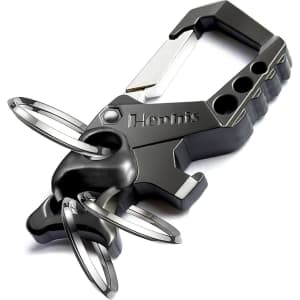
It's the best deal Amazon has offered for this key chain. Buy Now at Amazon

Choose from over 100 titles, making this a great chance to bulk up your physical media library without breaking the bank. Buy Now at Amazon

FitVille offers the FitVille Men's LugMax V3 Low-Top Outdoor Slip-On Hiking Shoes for $27.99 (reduced from $78) via coupon code "LM64" with free shipping. Buy Now at FitVille
- extra wide toe box
- 4 point stability
- 5mm rubber lugs

It's the best price that Amazon has charged for this belt. Buy Now at Amazon

It's the best price that Amazon has charged for this kettle and a great deal for an electric kettle of this size in general. Buy Now at Amazon

This weeklong Japan package includes roundtrip airfare, 7 nights in well-reviewed hotels in Tokyo, Kyoto, and Osaka, plus daily breakfast. It also comes with a Tokyo highlights tour and Shinkansen bullet-train rides between cities. Book this travel deal for select departures through January 2027.
Satisfy your wanderlust - and your wallet - by taking a look at all our top travel deals. Buy Now at Travelzoo

That's $5 less than Home Depot charges. Available at this price in Black. White is a buck more. Buy Now at Amazon

You'd have to pay at least $3 (though most retailers are charging around $30 or more) to snag this game elsewhere today. Shop Now at Amazon

In this sale you can get deals on a selection of refurbished smartwatches. Brands include Apple, Samsung, Garmin, Amazfit, and more. Stock on select items may be limited. Each item includes a 90-day Amazon Renewed warranty.
Buy Now at Amazon

Birdfy Smart Bird Feeder is now 50% off on Amazon. NETVUE INC is offering it for $74.99 (reduced from $149.99) via coupon code "LW3E2G92", with free shipping. Featuring 1080p HD resolution and color night vision, you can enjoy crystal-clear bird videos directly on your phone, even in low-light conditions. Buy Now at Amazon
- 1080p live stream camera
- 2.4GHz Wi-Fi connection
- 50-oz. food capacity
- Weatherproof design
- AI identifies 6,000 bird species
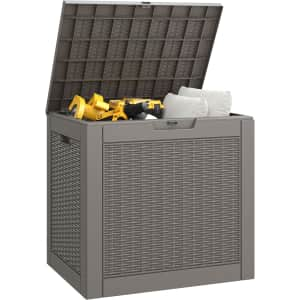
That's a savings of $10. Buy Now at Amazon

That's $6 off and the lowest price we could find. Buy Now at Lowe's

Apply coupon code "5W5Q63EQ" for a savings of $40. Buy Now at Amazon
- 2 MOA precision
- 1600G impact resistance
- 36-layer coated lens
- Waterproof and dust resistant
- Shake awake function

You'd pay $8 more elsewhere. Buy Now at Amazon

Get an original glazed dozen for $2 when you buy any other dozen and apply promo code "BOGO2".
If you're in the mood for fast food, you can save even more with these Uber Eats promo codes. Buy Now at Krispy Kreme


Apply promo code "JANUARY50" to get the lowest price we could find by $11 (but most stores charge $60). Buy Now at eBay
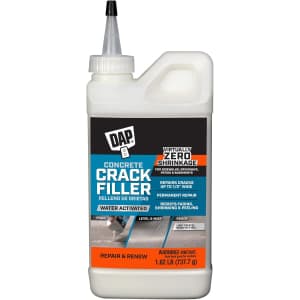
It's the best price we could find by $2. Buy Now at Amazon

RM Gold NYC offers the RMZ GOLD NYC 18K Gold Flat Mariner Link Anklet for $12 (reduced from $199.99) via coupon code "DN15" with free shipping. Buy Now at RM Gold NYC
- 10" length

Save on utensils, small appliances, coffee makers, food storage and more. We've pictured this Instant Slim 6-Quart Air Fryer Oven for $89.99 (it's $120 on Amazon today.) Buy Now at Woot! An Amazon Company
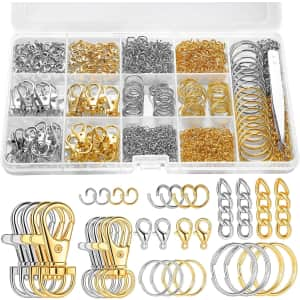
Clip the coupon to drop this set to the best price that Amazon has charged for it. Buy Now at Amazon

Save on storage bins, drawers, boxes, and more. The pictured IRIS USA 91-qt. Stackable Plastic Storage Bins with Lids 4-Pack is $79.99 ($20 off). Buy Now at Amazon

That's $6 off and a low price for a wooden animal carving night light like this doggy one. Buy Now at Woot! An Amazon Company
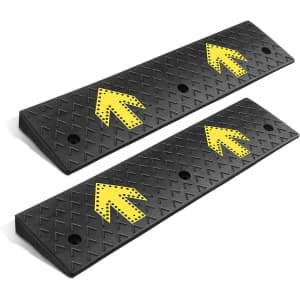
It's the best price that Amazon has charged for these ramps. Buy Now at Amazon

Apply promo code "JANUARY50" to get this price, which is $12 off and a great deal for adidas shorts. Buy Now at eBay

That's $10 under our mention from last month, and the best price we've seen in any condition. A 1-year Allstate warranty applies. Buy Now at eBay
- Google Tensor G2 chipset
- split screen multitasking
- compatible with most major carriers
- IPX8 water resistant
- 12GB RAM; 256GB storage
- Android 13.0
- Model: G9FPL

They're within a buck of the best price we've seen for these in brand-new condition. Buy Now at Amazon
- Live translation
- Twice the ANC as first generation AirPods Pro
- 5 tip sizes
- IP57 dust- and water-resistance
- Model: MFHP4LL/A

The on-page coupon makes it the best price we found by $21. Buy Now at Amazon
- 26-lb. capacity per basket
- Model: 590088

Eco-Worthy US via eBay offers the Eco-Worthy 30.72kWh 48V 100AH Server Rack Lithium Battery 6-Pack with Monitor for $4,679.99 (reduced from $5,179.99) with free shipping. Buy Now at eBay
- wireless connectivity and smart monitoring
- fits standard 3U cabinets
- durable full-metal shell and a 100A BMS that provides multiple layers of protection

Prime members can apply coupon code "QBDSMFMP" for a savings of $215. Buy Now at Amazon
- AMD Ryzen 7 7730U processor
- 32GB DDR4 RAM
- 1TB PCIe SSD
- Triple 4K display support
- Windows 11 Pro pre-installed

Save $735 per traveler on this 2-city package, bundling round-trip flights from various U.S. airports plus hotel stays split between London and Paris, letting you experience both cities' major sights and neighborhoods in one trip. It includes daily breakfast, and you can add checked baggage for an extra fee. Tourist taxes/resort fees aren't included, and prices vary by dates and availability. Book this travel deal by January 31.
Satisfy your wanderlust - and your wallet - by taking a look at all our top travel deals. Buy Now at Travelodeal
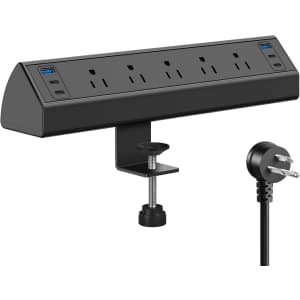
That's a 40% savings. Buy Now at Amazon
- 40W total fast charging
- (6) 20W USB-C ports
- 5 AC outlets

The paperback copy is $21 elsewhere. You must enter an active work email address to receive this offer. This deal ends January 21, 2026. Shop Now at TradePub
- by Kevin Beaver

It's the best deal Amazon has offered for this adapter. Buy Now at Amazon

Use promo code "JANUARY50" to drop it to the second-best price we've seen. It's also a great deal for an adidas track suit in general. Buy Now at eBay

Apply coupon code "IISYYZL3" for a savings of $20. Buy Now at Amazon
- Genuine cowhide leather
- Thermal silver fox velvet lining
- 360° touchscreen capability
- Reinforced grip and thorn proof
- Versatile for multiple activities

It's the best deal we've seen for this model in any condition. It inlcudes a 1-year Allstate warranty. Buy Now at eBay

RM Gold NYC offers the RMZ Gold NYC Sterling Silver 2-TCW Genuine Tanzanite Oval Stud Earrings for $14 (reduced from $249) via coupon code "DN11" with free shipping. Buy Now at RM Gold NYC
- Oval stone cut
- Butterfly backings
How Much Can I Save on the Hottest Deals?
The average savings can vary wildly day by day, but we regularly see discounts of anywhere from 15% to 96% off. The biggest discounts usually pop up for holidays, such as these Early Prime Day Deals. Thanks to coupon codes giving extra discounts, we'll regularly see shoes and apparel from the biggest brands like Nike, adidas, and New Balance at over 50% off. If you're looking for tools or home improvement, we see deals from stores like Home Depot and Lowe's that take up to 70% off. Plus, if something's at its best-ever price, or close to it, or is just something we think is extra neat, you'll probably find it on our Staff Picks page.
How Often Are the Hottest Deals Updated?
Around the clock! An international team of highly-trained deal jockeys is constantly scouring Amazon, Walmart, Best Buy, Target, and any other store you care to name, seeking out the latest and greatest deals for you to peruse. From daily deals and doorbusters to niche finds and off-the-wall offers, our pages are always being updated with something new and interesting and discounted.
